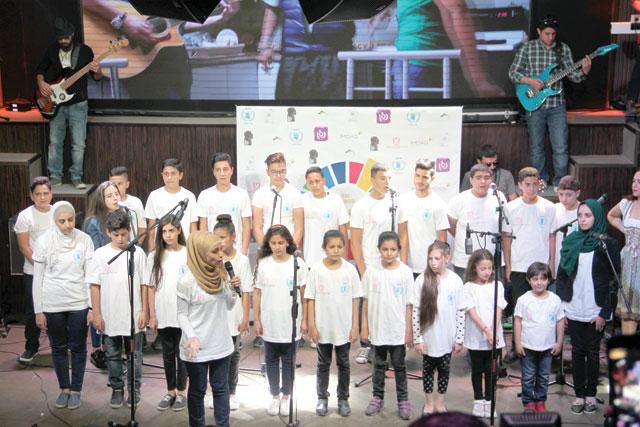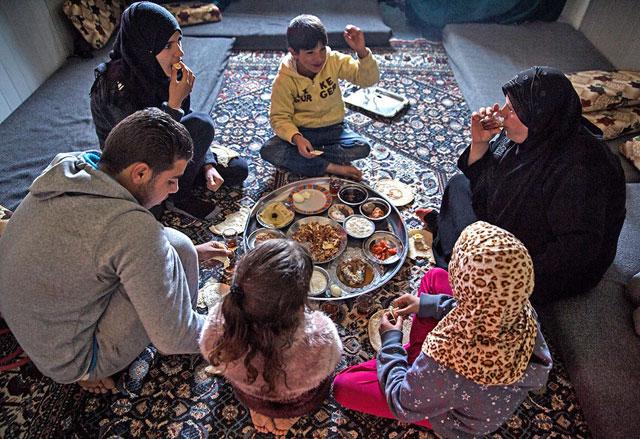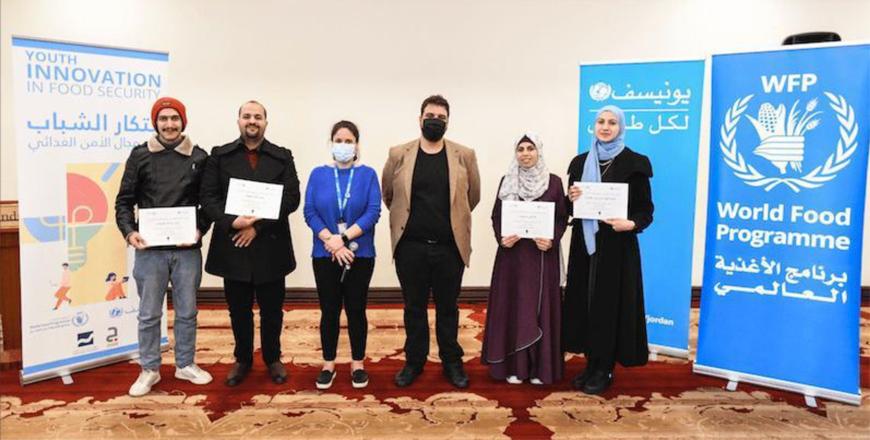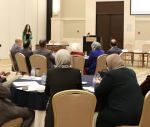You are here
Music becomes ‘food of love’ in live performance by Syrian and Jordanian children
By Camille Dupire - Oct 15,2017 - Last updated at Oct 15,2017

‘If music be the food of love’ was created through a 9-month programme that involved Syrian and Jordanian children aged from 7 to 18 years old (Photo by Camille Dupire)
AMMAN — The song “If music be the food of love”, composed by Syrian and Jordanian children from underprivileged communities, was launched on Saturday, during a joint performance with the Autostrad band.
The launch came during the “Healthy Not Hungry” dinner, organised on the occasion of the World Food Day. The occasion is marked annually on October 16 under the umbrella of the World Food Programme’s (WFP) global campaign against hunger.
WFP’s representative Mageed Yahia stressed the need to continue supporting Jordan in its effort to provide food security for all, in light of the Syrian refugee crisis.
“Conflicts can devastate the economy, disrupt agriculture and lead to forced population movements and we need to work together to address migration through supporting governments and partners,” he said in his opening speech.
Marking the achievement of a 9-month youth project, the show was performed by children aged from 7 to 18, who gave voice to their hopes and dreams in light of the Syrian crisis.
“I lost my country so Jordan came to save… I said goodbye to my country but I’m coming back because I’m brave,” the 25-strong choir sang, in a "lively and emotional performance" that saw the Opera House’s public cheer and acclaim the young artists.
The project was conducted through a series of collaborative therapeutic workshops held by local professionals and celebrities such as soprano Zeina Barhoum and Autostrad Band, among others.
“This is an initiative very dear to my heart as I have been working with these children for a couple of years now,” Barhoum told The Jordan Times at the event, adding “this is truly a dream come true to see all those talents perform on their own”.
The project started off with a collaboration between Edwina Issa from the Trojan Women Project LTP and Barhoum, who wanted to create a “sustainable and income generating” project that would benefit the children’s education in the long run.
“We were thinking of creating a song of which profits would go to fund the children’s education but, as we began conducting workshops and interacting with the kids, it dawned on us that they were the artists themselves and that they should own the whole project,” Barhoum recalled.
The young Syrians and Jordanians singlehandedly develop the entire creative process: from writing lyrics to composing the music and singing the final piece.
“These children have the most amazing raw talents, and all they needed was our help to let them flourish,” the soprano said.
A series of therapeutic workshops involving drama, art therapy and music were conducted by a team of specialists who helped the children put their feelings and hopes into words.
“We would meet with them twice a week, and during the art therapy sessions, we would give them drama-centred assignments through which they created their own lyrics,” explained Tamara Ziadat, one of the drama teachers who accompanied the children.
The project was funded by the WFP, which used the opportunity of the “Healthy not Hungry” world initiative to shed light on the importance of children’s livelihoods, under the patronage of HRH Prince Hassan.
On Saturday, Autostrad Band and chef Manal Al Alem entertained the public in an interactive evening of music and food, presented by renowned comedian and singer Amal Al Dabbas, who is also WFP’s national ambassador for fighting hunger in Jordan.
Acclaimed chef Alem presented the audience with a live cooking show, during which she stressed the importance of a sustainable, healthy diet that supports the local production.
“Healthy food is the key to a healthy generation which will develop good and peaceful thinking,” she said at the event, stressing the need to support the local communities by using locally sourced ingredients in everyday’s cooking.
The funds raised by the dinner will be used to support WFP’s school meals project that produces and distributes 380,000 meals per day to students in the camps and host communities, in collaboration with the Ministry of Education.
Related Articles
AMMAN — As part of its Global Goal to end hunger and manultrition worldwide, the world Food Programme (WFP) in Jordan is organising a “Healt
MADABA — A WFP project to provide meals for children of underprivileged families at schools in Jordan has also become a source of employment
AMMAN — The United Nations World Food Programme (WFP) and the UN Children’s Fund (UNICEF) awarded seed funding to five young women and men,




















